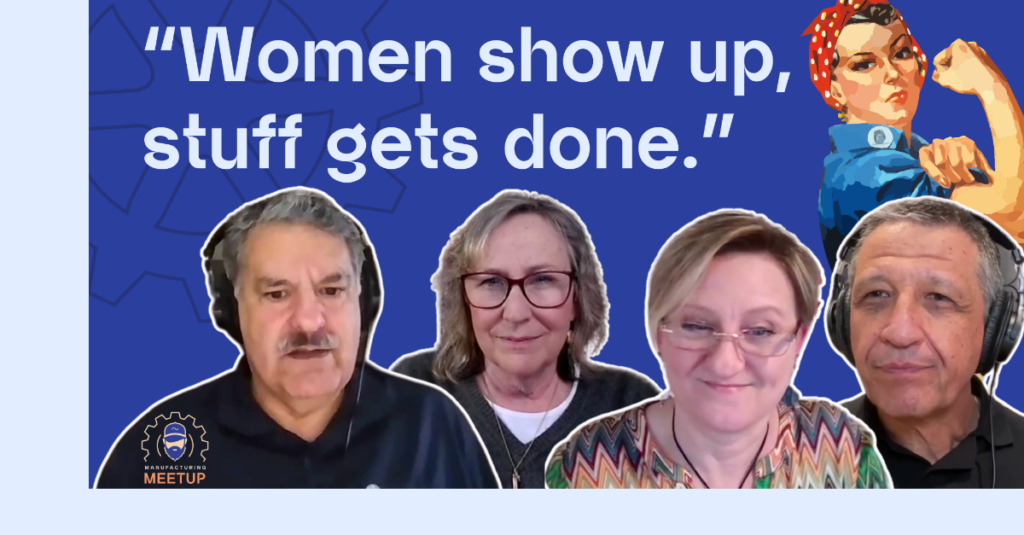This article was orginally published on 9 November 2021.
Expanding without Exploding
With growth, you can never keep it linear. You have to strategize. You have to embrace new ways of working that allow you to expand without exploding. It certainly involves a lot of juggling – sticking to the balls while avoiding the chainsaws.
So to look for tips on how to stay focused, we reached out to three Augurites in charge of different aspects of growth. Sameh Damuni is Augury’s Program Manager in charge of geographic expansion. Amy Marchesi is Product Marketing Manager overseeing the roll-out of MH SE (Machine Health for Supporting Equipment). And our third expert is James Newman, who as Director of Market Strategy is busy aligning everyone under the “bigger picture”.
1) Prioritize
“My job is essentially prioritizing, alignment and communication,” says Sameh. “It’s about defining a process and prioritization mechanism for getting into new geographies. Currently, we are actively working on Russia, Australia and China. Previously, we were more reactive. If a newly signed customer asked us to go to a new geography, we’d just start implementing – dealing with the challenges as they came up. Now, we can come with a plan.”
“Prioritizing is essential for all growing companies,” agrees James. “Especially when you are going from hyper scale-up to enterprise. Earlier in the growing curve, sales would just drop by and say: ‘I need this for a customer NOW!’ But that’s not how enterprise works. You need some level of processes in place that allow you to prioritize. Startups don’t need these processes. Their goal is more ‘Let’s make payroll this month’.”
2) Keep Your Eye on the Data
“And when it comes to prioritizing, data can help inform you on how you can prioritize,” says Amy. “It’s about figuring out how you can be most efficient at getting the biggest impact at scale.”
“Absolutely,” says Sameh. “And you have to look at a full range of data. Sure, China might have 24% of the world’s manufacturing volume, but there are also legal and regulatory aspects. We also have to look at if we already have clients operating there, and how many. And here lies the challenge in the process: sometimes you just don’t have enough data to make a data-driven decision. And this is something we’re definitely working on.”
“Plus, you need to follow the data in all sorts of other ways throughout the organization,” says James. “For example, you need to monitor adoption and customer satisfaction so you can better understand how the users are adapting, when you are doing things more quickly.”
“We also have to do this data analysis on the frontend,” notes Amy. “We really need to keep questioning whether everything we do ties back to one of Augury’s values. How are we really quantifying the problem that we’re hoping to fix?”
“Actually, following the data can take you in a thousand different directions. It’s almost too big,” observes James.
3) Managing Expectations
“Managing expectations is a big part of the job as you grow,” says Sameh. “You might have a customer with a thousand machines, with ten of them in Antarctica. In this case you might want to give them a head’s up that those ten machines might have to wait a bit.”
“I’ve always loved the principles of Scotty, the engineer from Star Trek. One stated you should always pad your time estimates so you seem like a miracle worker when you finish early,” says James. “That goes too far of course, but you should set realistic expectations. We’re growing and doing more things so we will be naturally spreading ourselves thinner.”
“I think here it’s about reminding our clients what Augury is all about: we’re building a new category and we’re testing the limits of these new capabilities,” says Amy. “It’s a journey. We want to continue to find and build new avenues to create more value. And that’s why we try to find the right customers to help carve that path together.”
4) Maintaining and cultivating relationships
As Augury veterans, Amy and Sameh have built up many relationships in the company – with people they can call on when facing bumps on the road. “I’ve had a variety of jobs at Augury and know most of the stakeholders. For a program manager, it’s essential to maintain communication and relationships,” says Sameh.
“At the same time, you should be actively cultivating new relationships,” says relative newbie James. “New people are coming onboard who will become key players in moving the organization forward. I had a really bad experience at a previous company. They did not introduce me to anyone since I was so outside their mainstream business. It took me six months to find the right people who could actually help me.”
“I certainly experience the benefits of being at Augury for longer,” says Amy. “But when it comes to reaching out for advice or feedback, I do first try to figure it out myself – we are all battling time restraints after all.”
5) Get Proactive … But With Purpose
“Now that we’ve been talking for a while,” says James, “a lot of it is about becoming more proactive. Maybe it’s even the top tip that allows you to be successful at all the other tips. After all, Augury’s entire model is about being proactive – it’s what we tell our customers: stop being reactive and start getting proactive. But it’s not just about jumping around, it’s about jumping with purpose. You need a balance: between maintaining the speed and not making stupid decisions.”
In Conclusion…
“We need to keep our eyes on our mission and vision – those are the main balls to watch,” says James. “We’re growing because we’ve been successful. And now that we’re growing we must remain diligent to stay on mission. We will be getting a lot of requests to do stuff. So, we need to keep asking the question: Is this really helping us support the machines that matter most?”
To learn more about MH SE check out the solution’s announcement or connect with our team by reaching out here.





